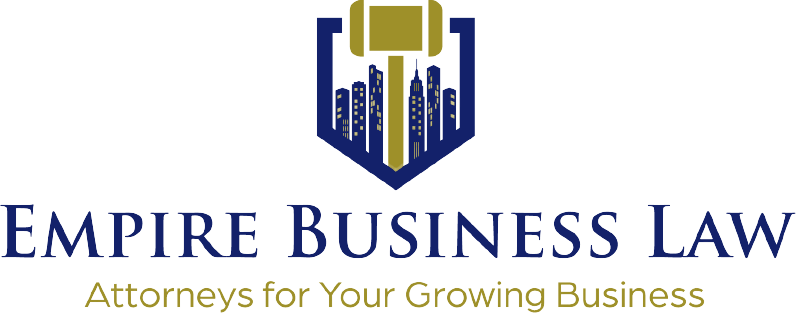10 Things Every Business Owner Must Know To Protect A Growing Business
10 Things Every Business Owner Must Know To Protect A Growing Business
1. Co-owner Agreement (Partnership agreements, shareholder agreements, operating agreements, etc.)
A co-owner agreement is a crucial document that outlines the ownership structure and sets clear expectations between multiple owners of a business. Here are some key points to expand upon regarding the importance of a co-owner agreement:
- Defining Ownership: When there are multiple owners involved in a business, it is essential to clearly define who owns what percentage of the company. This helps avoid confusion and disputes in the future.
- Roles and Responsibilities: A co-owner agreement should outline the roles and responsibilities of each owner. This ensures that everyone understands their specific duties and avoids conflicts or gaps in decision-making.
- Decision-Making Process: It's important to establish a decision-making process within the co-owner agreement. This includes determining how major decisions will be made, such as entering into contracts, making investments, or changing business strategies.
- Dispute Resolution: A co-owner agreement should include provisions for resolving disputes between owners. This may involve methods like mediation or arbitration to handle conflicts, ensuring that disagreements can be settled without resorting to costly litigation.
- Long-Term Vision: The co-owner agreement should take into account the long-term vision for the business. This includes considering potential future scenarios, such as selling the business, bringing in new owners, or planning for retirement. Addressing these possibilities in advance helps to avoid conflicts and ensures a smooth transition if such events occur
- Buy-Sell Agreement: A buy-sell agreement is an important component of a co-owner agreement. It outlines the terms and conditions for the sale or transfer of an owner's interest in the business. This helps protect the interests of all owners and ensures a fair process in the event that one owner wants to leave the company.
- Intellectual Property and Confidentiality: The co-owner agreement should address the ownership and protection of intellectual property created or used by the business. It should also include provisions to safeguard the confidentiality of sensitive business information, trade secrets, and customer data.
- Non-Compete and Non-Disclosure Agreements: It is common to include non-compete and non-disclosure agreements in a co-owner agreement. These agreements prevent owners from competing with the business or disclosing confidential information after leaving the company.
- Succession Planning: Planning for the future is crucial, even when starting a business. The co-owner agreement should address succession planning, outlining the process for transferring ownership and management responsibilities in the event of an owner's death, disability, or retirement.
- Regular Review and Update: A co-owner agreement should not be a one-time document. It is essential to review and update the agreement periodically, especially when significant changes occur within the business or among the owners. This ensures that the agreement remains relevant and reflects the current state of the business.
By having a comprehensive co-owner agreement in place, business owners can establish a solid foundation for their relationship, mitigate potential conflicts, and protect the interests of all parties involved in the growing business.
SEE ALSO:
trademark lawyer in NYC
2. Name Search
Performing a name search is a crucial step for any business owner to ensure they are not infringing on someone else's trademark and to avoid potential legal issues. Here are some points to expand upon regarding the importance of conducting a name search:
- Avoiding Trademark Infringement: Conducting a name search allows you to determine whether your chosen business name or brand is already in use by another company in the same industry or related field. This helps you avoid infringing on someone else's trademark rights, which could lead to legal disputes and costly consequences.
- Protecting Your Brand: Your business's name is a valuable asset that represents your brand identity and reputation. By performing a comprehensive name search, you can ensure that your chosen name is unique and distinctive, reducing the risk of confusion with other businesses. This helps protect your brand from dilution or loss of consumer recognition.
- Comprehensive Search: While a basic Google search can provide some initial insights, it is important to conduct a more extensive and comprehensive name search. This typically involves searching databases of existing trademarks, business registries, domain names, and other relevant sources to identify any potential conflicts.
- Professional Help: In some cases, it may be advisable to seek professional assistance from an intellectual property attorney or a trademark specialist to conduct a thorough name search. They have the expertise and access to specialized databases that can uncover potential conflicts that a simple search might miss.
- Mitigating Costly Pitfalls: Investing in the growth of your brand without conducting a proper name search can result in costly pitfalls. If you inadvertently choose a name that is already trademarked or being used by another business, you may have to rebrand your entire business, which can be expensive and detrimental to your reputation.
- Trademark Registration: If your name search confirms that your chosen name is available, it is important to consider registering it as a trademark. This provides you with legal protection and exclusive rights to use the name in connection with your specific goods or services, further safeguarding your brand.
- Ongoing Monitoring: After conducting a name search and establishing your business, it is wise to continue monitoring for any new trademarks or businesses that may emerge with similar names or potentially infringing on your trademark. Regular monitoring helps you stay informed and take appropriate action if necessary.
By conducting a thorough name search before investing in the growth of your brand, you can minimize legal risks, protect your business's reputation, and ensure a solid foundation for long-term success.
3. Domain and Social Media Issues
In the digital age, domain, and social media issues play a crucial role in protecting a growing business. Here's an expanded explanation of the key points:
- Online Impact: With the widespread influence of digital media, it's important to recognize that anything you put online can have a significant impact on your business. Your online presence, including your website, social media profiles, and online reviews, can shape public perception and affect customer trust. Therefore, it is essential to manage your digital footprint carefully.
- Copyright Compliance: Copyright infringement can lead to severe legal consequences and damage your business's reputation. When using images, videos, music, or other creative content, it is crucial to ensure that you have the necessary rights and permissions. Using copyrighted material without authorization can result in legal disputes and financial liabilities. It's advisable to rely on original content or obtain proper licenses or permissions to use third-party content.
- Google My Business: Familiarizing yourself with Google My Business is vital for enhancing your online visibility and managing your business's online presence effectively. It allows you to create and control your business listing on Google, ensuring accurate information about your company is displayed in search results, Google Maps, and other Google services. Optimizing your Google My Business profile can help attract potential customers, improve local search rankings, and establish credibility.
- Expert Help: While it may be financially feasible for some businesses, seeking expert help in managing domain and social media issues can be highly beneficial. Professionals such as digital marketing consultants or intellectual property attorneys can provide guidance on copyright compliance, online reputation management, social media strategies, and optimizing your online presence. Their expertise can help navigate legal complexities, develop effective digital marketing strategies, and ensure compliance with industry standards.
By recognizing the significance of domain and social media issues, business owners can proactively protect their growing business in the digital landscape. Prioritizing copyright compliance, understanding the impact of online presence, and leveraging platforms like Google My Business set the foundation for a strong online reputation and sustainable growth. Seeking expert assistance, when possible, can further enhance your digital strategy and ensure legal compliance, safeguarding your business's long-term success.
4. Entity Decision
When it comes to the entity decision for your business, there are several important factors to consider. Here's an expanded explanation of the key points:
- Fit with Business Goals: Selecting the right entity structure is crucial as it should align with the goals and objectives of your business. Different entity types, such as sole proprietorship, partnership, limited liability company (LLC), or corporation, offer distinct advantages and disadvantages. Assessing your business goals helps determine which entity structure best suits your needs.
- Limitation of Liability: One important consideration is the limitation of liability. Certain entity structures, like LLCs and corporations, provide a level of protection for your personal assets in the event of legal action against the business. This separation between personal and business liabilities can help safeguard your personal finances and assets if your business faces lawsuits or other legal challenges.
- Tax Implications: Another significant factor in the entity's decision is taxes. The Internal Revenue Service (IRS) has different tax structures for various entity types. Each entity structure comes with its own tax advantages and obligations. Some entities, such as S corporations or LLCs, may offer tax benefits like pass-through taxation, where business income is reported on individual tax returns, potentially reducing overall tax liability. Considering the potential tax implications can help you save money and optimize your tax strategy.
- Alignment with Future Goals: Your entity decision should also account for the future trajectory of your business. Different entity structures have varying rules and regulations regarding ownership, management, fundraising, and expansion. Assessing your long-term goals, such as seeking outside investors, going public, or succession planning, can help determine the most appropriate entity structure that allows for flexibility and accommodates future growth.
It is crucial to consult with legal and tax professionals who specialize in business law to understand the specific implications of each entity type. They can provide guidance on selecting the most suitable entity structure based on your unique circumstances and goals, ensuring compliance with applicable laws and regulations.
By carefully considering liability protection, tax implications, and future goals, you can make an informed entity decision that provides legal protection, tax advantages, and aligns with the long-term vision of your business.
5. CPA's and Bookkeeping
When it comes to managing finances and ensuring the financial health of your business, working with a Certified Public Accountant (CPA) and maintaining proper bookkeeping practices are crucial. Here's an expanded explanation of the key points:
- More Money, More Problems: As your business grows and financial complexities increase, it becomes even more important to have a solid grasp on your financial matters. Handling larger sums of money, tracking expenses, and managing cash flow require expertise to avoid potential pitfalls and ensure accurate financial records.
- Vetted Professional: It is essential to work with a qualified and experienced CPA or bookkeeping professional who understands the intricacies of business finances. Hiring a vetted professional provides peace of mind and ensures that your financial records are accurate, compliant with regulations, and optimized for tax purposes.
- Tax Strategy: Consulting with your CPA about tax strategy can have a significant impact on your business's financial well-being. A well-planned tax strategy can help reduce your tax burden, maximize deductions and credits, and potentially increase your overall profitability. By discussing your business's specific circumstances and goals with a CPA, you can identify tax-saving opportunities and make informed decisions that can positively impact your financial life.
- Financial Guidance: In addition to tax strategy, CPAs can provide valuable financial guidance in areas such as budgeting, cash flow management, financial forecasting, and long-term financial planning. Their expertise can help you make informed decisions, optimize your financial resources, and navigate financial challenges effectively.
By working with a CPA and maintaining proper bookkeeping practices, you can ensure the accuracy and reliability of your financial records, optimize tax outcomes, and receive valuable financial guidance. This enables you to make informed decisions, manage financial risks, and position your business for long-term financial success.
6. Equity
Equity plays a significant role in business ownership and financial decisions. Here's an expanded explanation of the key points:
- Understanding Equity: Equity represents the ownership percentage of a company. It determines the proportion of shares or ownership rights held by individuals, including business owners and investors. Having a clear understanding of equity is crucial for making informed decisions regarding ownership and financial arrangements.
- Selling Equity: Business owners have the option to sell a portion of their business to generate funds or attract investors. However, it's essential to approach such transactions cautiously and ensure that proper contracts are in place. Selling equity without a contract can lead to disputes and potential loss of control over the business. Seeking legal advice when dealing with equity sales can help protect your interests.
- Strategic Considerations: Giving up equity should be a strategic decision. While it may be necessary to secure crucial resources or expertise, it is advisable to carefully evaluate the potential benefits and long-term implications. Avoid giving up equity for temporary roles unless it is absolutely necessary or serves a strategic purpose aligned with your business goals. Maintaining control over equity distribution is vital for preserving ownership and decision-making power.
By understanding the concept of equity and making thoughtful decisions regarding equity sales, business owners can maintain control over their companies and protect their long-term interests. Seeking legal guidance and evaluating the strategic importance of equity transactions can help ensure that such decisions align with the overall vision and objectives of the business.
7. Loans
Loans can serve as a valuable tool for business owners seeking to grow their ventures without relinquishing ownership or equity. While loans occasionally carry a negative perception, they can be highly effective in providing the necessary capital to support business expansion. Unlike selling equity, which involves sharing ownership and potentially diluting control, loans offer a structured borrowing arrangement where funds are provided in exchange for repayment with interest.
When considering loans, it is crucial to conduct thorough research and evaluate various options to find the most suitable terms for your business. Government loans, such as those offered by Small Business Administration (SBA) programs, may come with favorable terms and lower interest rates. Private lenders, including banks or alternative financing institutions, also offer a range of loan products tailored to different business needs. Carefully review and compare interest rates, repayment terms, fees, and any additional requirements specific to each loan option.
Before finalizing any loan agreement, it is essential to fully comprehend the terms and conditions outlined in the loan documentation. Pay close attention to interest rates, repayment schedules, collateral requirements, and any associated fees. Seek clarification on any points that are unclear to ensure you have a comprehensive understanding of your obligations and the potential impact on your business's cash flow.
To protect your interests and maintain clarity, it is critical to get all loan agreements in writing. Written documentation provides legal protection and ensures both parties are clear on the terms of the loan, minimizing the risk of misunderstandings or disputes down the line. Having a written agreement also serves as a reference point for future reference or if any issues arise during the repayment process.
Maintaining open communication with your lender is essential throughout the loan process. If you have questions, or concerns, or encounter difficulties in meeting repayment obligations, proactively engage with your lender to explore potential solutions. Many lenders are willing to work with borrowers during challenging times, offering options such as loan modification or refinancing to support continued business growth.
By carefully evaluating loan options, understanding the terms and conditions, and maintaining open communication with your lender, you can leverage loans as a powerful tool for business expansion. Taking a strategic and informed approach to borrow can provide the necessary capital to invest in your business's growth while retaining ownership and control over your enterprise's destiny.
8. Business License and Permits
Obtaining the necessary business licenses and permits is a crucial step for operating a legitimate and compliant business. Here's an expanded explanation of the key points:
- Unique Requirements: Each business type and industry may have specific license and permit requirements. It is essential to research and understand the licenses and permits necessary for your particular business. These requirements can vary at the city, county, and state levels, so it is important to identify and comply with all relevant regulations.
- Legal Compliance: Operating without the required licenses and permits can lead to serious consequences, including fines, penalties, or even forced closure of your business. It is crucial to ensure that you have obtained all the necessary licenses and permits before commencing operations. This includes business licenses, professional licenses, health and safety permits, zoning permits, and any other permits specific to your industry or location.
Renewal Dates: Licenses and permits typically have expiration dates and require regular renewals. It is essential to keep track of these dates and submit renewal applications on time to maintain legal compliance. Failing to renew licenses or permits can result in the suspension of business activities or additional penalties.
To navigate the complexities of business licenses and permits effectively, consider the following steps:
- Research: Thoroughly research the specific licenses and permits required for your business at the city, county, and state levels. Understand the application process, required documentation, and associated fees.
- Documentation: Gather all the necessary documentation, such as identification, business formation documents, proof of insurance, and any other specific requirements outlined by the licensing authorities.
- Application Submission: Complete and submit the license and permit applications accurately and on time. Be prepared to pay the required fees and follow any additional instructions provided.
- Record-Keeping: Maintain organized records of all licenses and permits obtained, including renewal dates and supporting documentation. Regularly review and update your records to ensure compliance and facilitate future renewals.
- Stay Informed: Keep yourself updated on any changes or updates to licensing and permit requirements that may affect your business. This can be done by subscribing to relevant newsletters, checking government websites, or seeking professional advice.
By proactively researching and obtaining the necessary licenses and permits, staying up to date with renewal dates, and maintaining accurate records, you can ensure legal compliance and avoid potential fines or disruptions to your business operations. Remember that compliance with licensing and permit requirements is an ongoing responsibility that should be prioritized to protect the longevity and success of your business.
9. Insurance
Insurance is a crucial aspect of protecting your business from unforeseen events and liabilities. Here's an expanded explanation of the key points:
- Importance of Insurance: Having appropriate insurance coverage safeguards your business from potential risks and unexpected events that could result in financial loss. Insurance provides a safety net, offering financial protection against property damage, liability claims, lawsuits, employee injuries, and other potential risks specific to your industry.
- Umbrella Coverage: "Umbrella coverage" refers to a type of insurance that provides additional liability protection beyond the limits of your primary insurance policies. It acts as an extra layer of coverage, offering extended financial protection against catastrophic events or significant claims that exceed the limits of your standard policies. Umbrella coverage can be highly beneficial in safeguarding your business against costly lawsuits or damages.
- Understanding Coverage: It is essential to thoroughly understand the details of your insurance coverage. Review your policies carefully, including the coverage limits, deductibles, exclusions, and any specific terms and conditions. If necessary, seek professional advice from an insurance broker or agent to ensure you have the right coverage for your business's unique needs.
- Policies and Procedures: In addition to having insurance coverage, it is crucial to establish policies and procedures within your business to mitigate risks and promote safety. Implementing proper protocols and guidelines can help prevent accidents, minimize liability exposure, and demonstrate your commitment to maintaining a safe working environment.
- Entity Protection vs. Damages: While forming a legal entity for your business, such as an LLC or corporation, provides personal liability protection, it does not cover damages caused by your business. Insurance is necessary to cover potential damages and liabilities that may arise from your business activities, such as property damage, product defects, or professional errors.
By securing appropriate insurance coverage, including umbrella coverage when feasible, and understanding the terms and conditions of your policies, you can protect your business from unexpected financial burdens. Establishing policies and procedures to minimize risks further strengthens your risk management strategy. Remember that insurance complements entity protection, providing comprehensive coverage for potential damages and liabilities associated with your business operations.
10. Contracts
Contracts play a fundamental role in business transactions and relationships. Here's an expanded explanation of the key points:
- Contract Importance: Having contracts in place for your customers, vendors, and clients is essential for establishing clear expectations and protecting the interests of all parties involved. Contracts outline the terms and conditions of the agreement, including payment terms, deliverables, responsibilities, and dispute resolution mechanisms.
- Daily Contractual Engagements: Businesses enter into contracts regularly, whether it's for providing goods or services, purchasing supplies, or engaging in partnerships. Contracts serve as legal instruments that define the rights and obligations of each party, ensuring transparency and accountability.
- Clear Contractual Terms: Well-drafted contracts should address the "what happens when?" scenarios, meaning they anticipate and address potential contingencies or issues that may arise during the course of the business relationship. Clarity and specificity in contractual terms help minimize misunderstandings and conflicts.
- Avoid Vague Contracts: Vague or overly broad contracts can lead to ambiguity and potential disputes. It is important to ensure that contracts are drafted with precision, clearly defining key terms, obligations, and expectations. Working with legal professionals, such as contract attorneys, can help ensure that your contracts are clear, comprehensive, and tailored to your specific business needs.
- Contract Review: Protecting your business interests requires a diligent review of any contract before entering into it. Carefully examine the terms, conditions, and potential risks involved. Seek legal advice when necessary to understand the implications and ensure that the contract aligns with your business objectives.
By having well-drafted contracts, addressing specific scenarios, and reviewing contracts before entering into them, you can protect your business from potential disputes, financial risks, and other adverse consequences. Contracts serve as essential tools for establishing mutually beneficial relationships and providing a solid legal framework for conducting business transactions.
BONUS
Intellectual Property Protection
Intellectual property protection is vital for the growth and sustainability of your business. Here's an expanded explanation of the key points:
- Importance of Intellectual Property: Your intellectual property, including trademarks, copyrights, and patents, forms the foundation of your brand identity and differentiation. It encompasses your company name, logo, slogans, product designs, and creative content. Protecting your intellectual property safeguards your unique assets and prevents unauthorized use by competitors or third parties.
- Brand Building: Your business's success relies on building a strong brand that resonates with your target audience. By safeguarding your intellectual property, you ensure that the brand you have built continues to be associated with your products and services, allowing for brand recognition, loyalty, and growth.
- Trademark Protection: Trademark protection is crucial for preserving your company's name, logo, and slogan. Registering your trademarks with the appropriate intellectual property office provides legal protection against unauthorized use and imitation. It allows you to enforce your rights and take legal action against those who infringe upon your trademarks.
- Comprehensive Protection: In addition to trademarks, consider other forms of intellectual property protection, such as copyright and patent, depending on the nature of your business. Copyright protects original creative works, such as written content, artwork, and software. Patents protect inventions or unique processes, providing exclusive rights and preventing others from using or selling your invention without permission.
- Professional Assistance: Intellectual property law can be complex, so it is advisable to seek the assistance of intellectual property attorneys or professionals specializing in this field. They can guide you through the process of identifying and protecting your intellectual property, conducting thorough searches, filing applications, and enforcing your rights.
By prioritizing intellectual property protection, including trademark registration for your company name, logo, and slogans, you safeguard your brand identity and ensure its continued growth. Remember that protecting intellectual property is an ongoing effort, requiring periodic reviews, enforcement of rights, and staying informed about changes in the legal landscape.
SEE ALSO: trademark lawyer in NYC
Empire Business Law
SHARE POSTS:
Leave a Comment
Empire Business Law

Contact Empire Business Law Today for All Your Business Needs. Book an Appointment online Here or give us a call.
Call (855) 781-7705 / (909) 295-8725
Categories
• Business Law
• General Counsel
• Trademark Law
• Trademark Application
• Mergers & Acquisitions
Recent Posts
Newsletter Subscription








